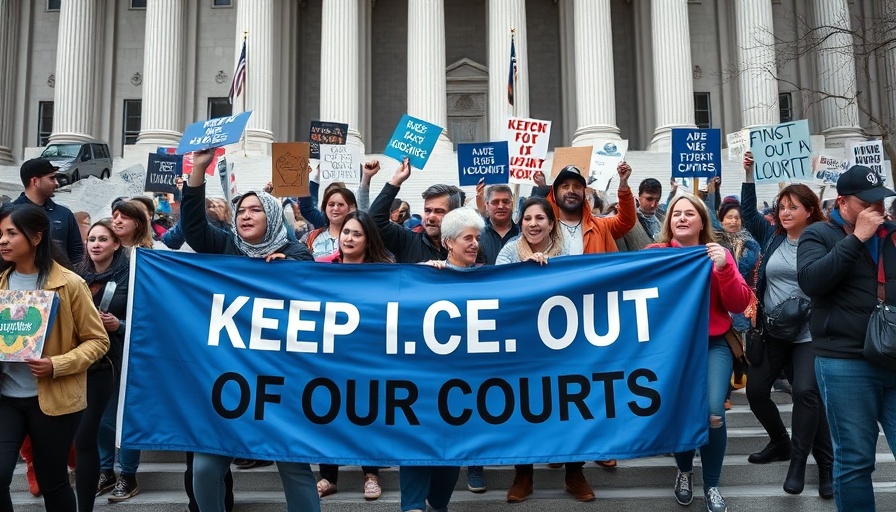
ICE's Policy Change: A Shift Towards Aggressive Enforcement
In a subtle yet significant move, the U.S. Immigration and Customs Enforcement (ICE) has rolled back rules that previously guided agents to respect state and local laws during courthouse raids. This change reflects the agency's intention to broaden the scope of its enforcement tactics, potentially leading to increased confrontations and legal challenges, particularly in jurisdictions that are protective of their immigrant populations.
The Implications of Reduced Oversight
The newly issued guidelines favor the autonomy of ICE agents, allowing them to conduct arrests without needing to assess whether their actions might violate local laws. Previously, agents were required to consult legal advisers on potential conflicts with non-federal legislation. This foundational shift raises concerns among civil rights advocates regarding the erosion of local authority and the risks associated with unchecked federal enforcement of immigration laws.
Current Landscape of ICE Operations
The recent uptick in ICE operations has seen agents making high-profile arrests at courthouses, igniting widespread protests and vocal opposition from community members. As ICE escalates its enforcement measures amidst a broader crackdown on illegal immigration—an initiative touted by the Trump administration as the "largest deportation campaign in American history"—local governments face the challenge of ensuring the protection of their residents while adhering to state laws.
The Role of Local Governments in ICE Actions
With the changes to ICE's enforcement guidelines, local leaders are now under increased pressure to balance cooperation with federal authorities while safeguarding the rights of immigrants within their communities. Effective communication between local governments and immigrant advocacy groups becomes paramount in navigating the complexities of this new enforcement landscape to uphold community trust and safety.
Civil Rights Concerns and the Future of ICE Enforcement
Experts warn that without stringent limitations, ICE's policy shift may unleash a wave of unrestricted enforcement actions that could deter vulnerable populations from accessing essential services and legal support. There is a growing call for a recommitment to maintaining the integrity of state law enforcement processes and protecting community members from aggressive federal encroachments.
Take Action: Advocating for Local Protections
As these events unfold, it is crucial for community members to engage with local leadership and advocate for protective measures that safeguard immigrant rights and ensure compliance with state laws during ICE operations. Collaborative efforts between grassroots organizations and local government can play a pivotal role in shaping policies that promote safety and trust.
 Add Row
Add Row  Add
Add 




 Add Row
Add Row  Add
Add 

Write A Comment